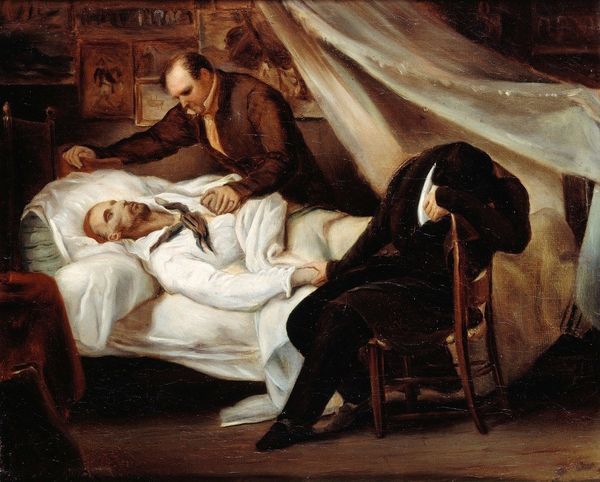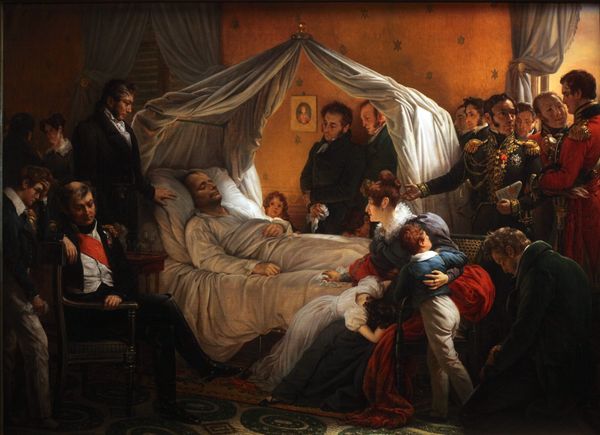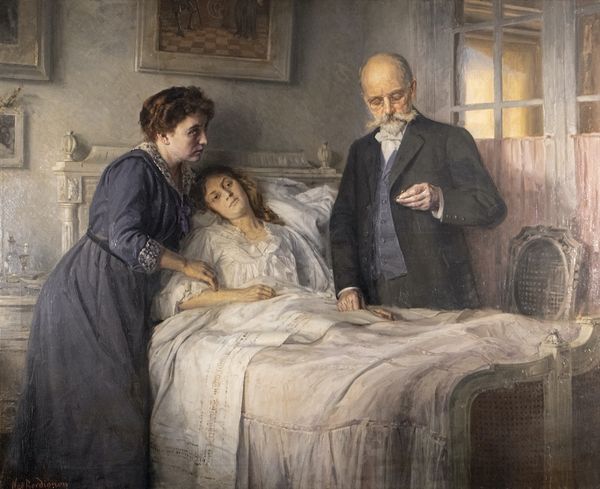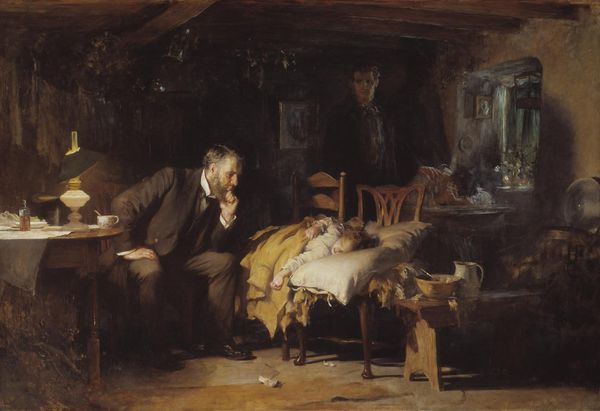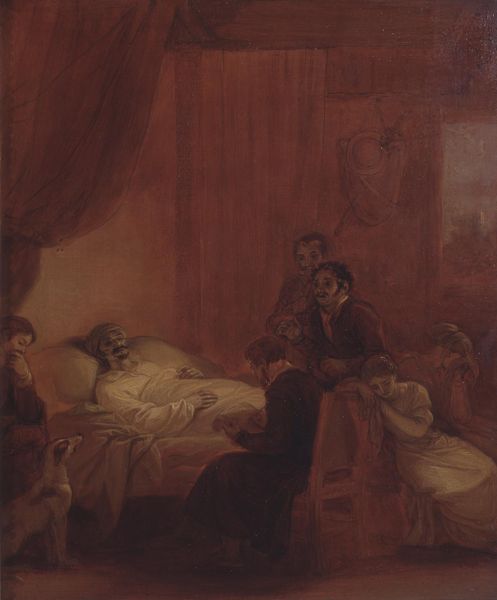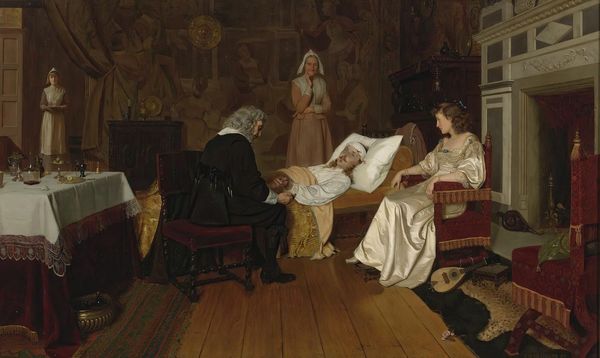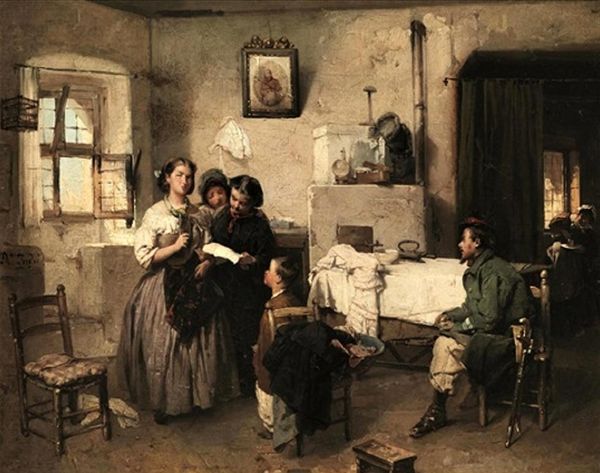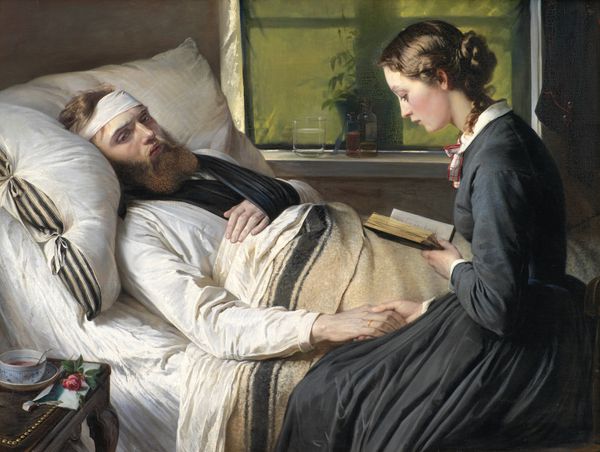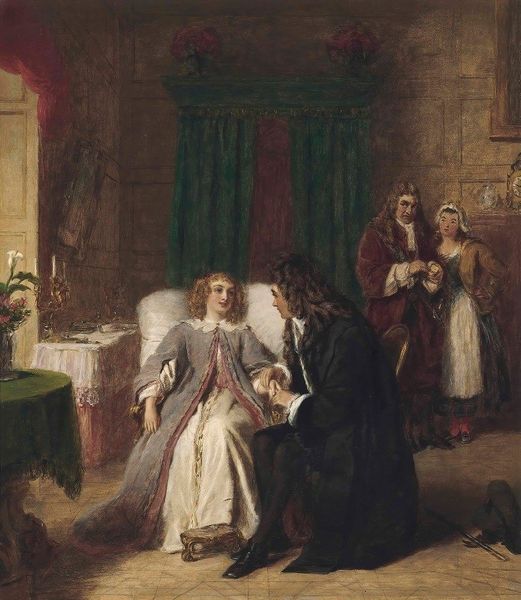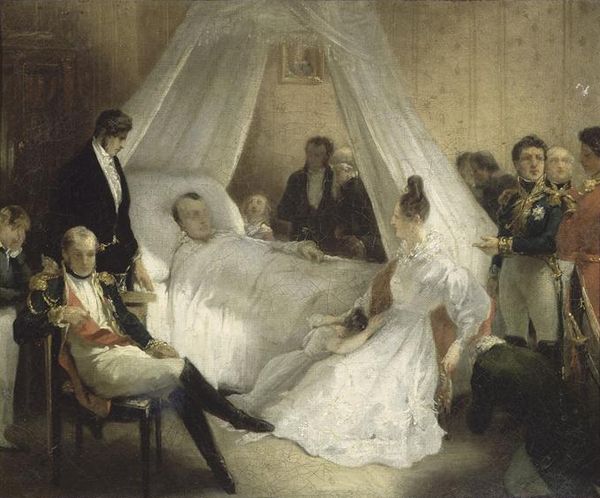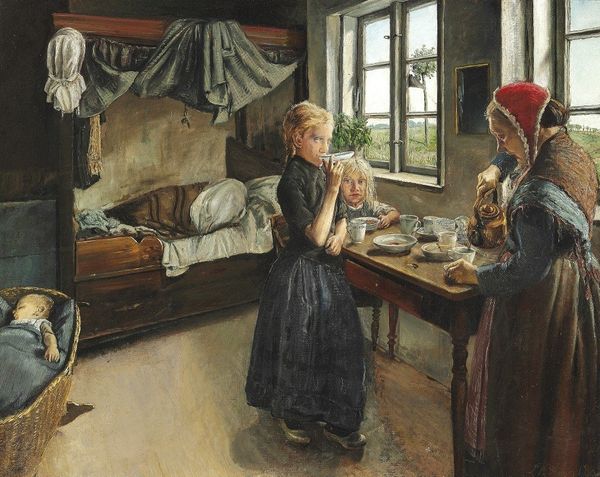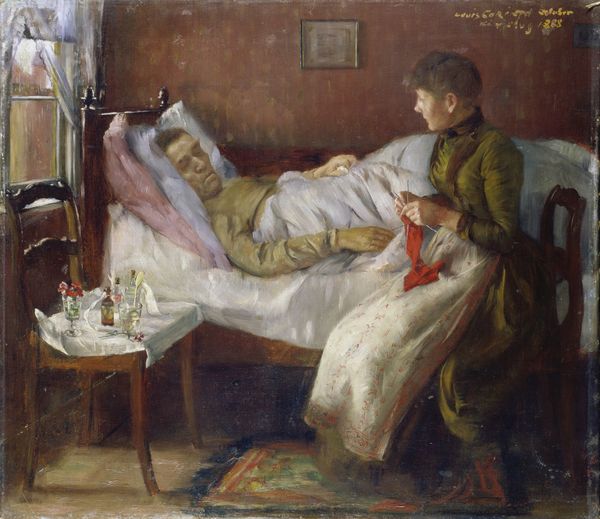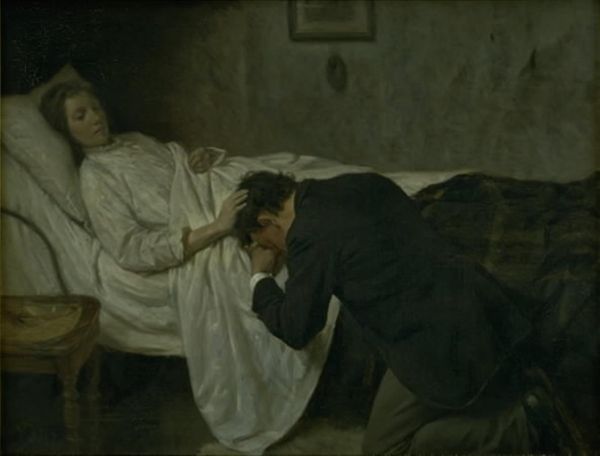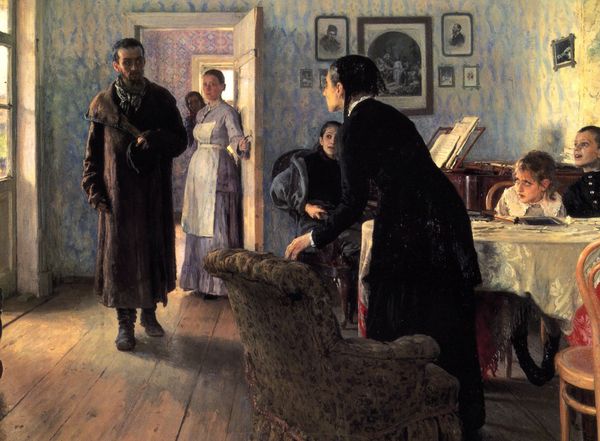
oil-paint
#
portrait
#
oil-paint
#
oil painting
#
genre-painting
#
naturalism
#
portrait art
#
realism
Copyright: Public domain
Editor: Arturo Michelena's "The Sick Child," painted in 1886 using oil, evokes such a palpable sense of sorrow and concern. The whole scene is composed with somber tones and figures huddled around the central figure of the ailing child. What underlying narratives or symbols do you observe in this scene? Curator: The visual language is heavy with historical symbolism, isn’t it? Notice how Michelena places the child towards the window, a space for both potential recovery and potential escape—a soul's egress from the earthly realm. Think of the historical context: Disease held a very different cultural weight then. It represented mortality in a much starker way. Editor: That's interesting! I hadn't considered the window as symbolic beyond bringing in light and air, what else stands out to you? Curator: Consider the doctor. The patriarchal figure of science attempting to mediate life and death. But observe, he's positioned between the family and the sick child, not quite integrated, representing both hope and helplessness. In this era, his black garb and solemn expression might suggest the limits of medicine. And then there’s the seated woman to the right, notice her contemplative, averted gaze. What might her posture suggest? Editor: Perhaps she is grief stricken, resigned or despairing to her own thoughts... it creates such a melancholic mood. I will certainly perceive paintings with an awareness of cultural symbols now! Curator: Indeed, these symbols give layers of depth to what may seem at first like a genre painting of domestic life. Looking at art, particularly from different eras, is a rewarding experience when we delve into the iconographic language of the past and see how it connects to our present understanding of emotion and humanity.
Comments
No comments
Be the first to comment and join the conversation on the ultimate creative platform.
